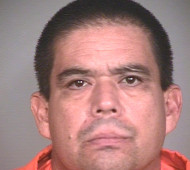10/5/2018
Arizona: Nothing Can Be Done When Cops Coerce ConsentCourt of Appeals in Arizona rejects exclusionary rule when police violate state law by improperly telling DUI suspect he cannot refuse breath test.

The results of an illegally coerced breath test will stand under a decision handed down Tuesday by the Arizona Court of Appeals. A three-judge panel found that Tucson police violated state law when they tricked Angel Soza into "consenting" to take a breath test in August 2015, but nothing will be done about that improper conduct.
Under Arizona statute, motorists are automatically deemed to have given their consent to a breath test any time they are pulled over for driving under the influence of alcohol (DUI). That consent, however, can be withdrawn, in which case no test can be given and a different set of automatic penalties would apply. Under a series of US Supreme Court and Arizona high court rulings, a motorist still must voluntarily agree to take the test.
"The mere fact that the defendant does not resist the test is insufficient under the statute; consent must be express," Judge Sean Earl Brearcliffe wrote for the panel's majority.
In this case, the Tucson officer improperly told Soza that he was "required" to take the breath test. So Soza complied. The court found that, absent a warrant or express consent, the breath test had been administered in violation of Arizona's DUI statute.
As a violation of state law, rather than of the US Constitution, the exclusionary rule does not apply, according to the appellate court majority.
"As a general rule, because the legislature is charged with providing remedies for the violations of the laws it enacts, unless a law states that exclusion of evidence is a remedy for its violation, the exclusionary rule is not imposed by the courts," Judge Brearcliffe wrote. "Because the legislature nowhere in Section 28-1321 [the DUI law] prescribed suppression of evidence as the remedy for its violation, were we to do so of our own accord, we would be engrafting on the law a remedy neither provided for by the legislature nor required by the Constitution."
In a footnote, the decision says that the ruling does not mean there is no remedy when police violate the DUI law, but the court does not specify what that remedy might be. In a dissenting opinion, Chief Judge Peter J. Eckerstrom said the breath test results should have been thrown out.
"In short, the Arizona Supreme Court has twice sanctioned violations of the implied-consent law by applying the exclusionary rule," Judge Eckerstrom explained. "As a subordinate court, I believe we are compelled to follow those cases and apply the rule to the similar violation here."
A copy of the ruling is available in a 200k PDF file at the source link below.


